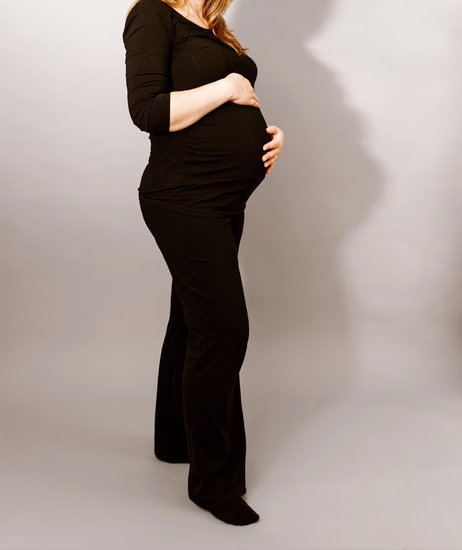Pregnancy is a beautiful journey filled with excitement and anticipation, but it also comes with its fair share of discomforts and challenges. One of the common issues that many pregnant women face is hemorrhoids. Hemorrhoids during pregnancy can be a source of great discomfort and pain for expectant mothers, but the good news is that there are ways to manage and treat this condition.
Hemorrhoids, also known as piles, are swollen and inflamed veins in the rectum and anus that can cause discomfort, itching, and bleeding. They are particularly common during pregnancy due to the increased pressure on the pelvic area and the hormonal changes that affect blood vessels. Understanding the causes of hemorrhoids during pregnancy is essential in finding ways to prevent and manage this condition effectively.
In this article, we will explore the causes, symptoms, management, treatment, prevention, risks, complications, and the importance of seeking medical help for hemorrhoids during pregnancy. We will also provide valuable tips and advice for expecting mothers on how to cope with this challenging condition. Whether you’re currently experiencing hemorrhoids or simply want to be prepared, this comprehensive guide will equip you with the knowledge you need to navigate through this aspect of pregnancy.
Understanding the Causes of Hemorrhoids During Pregnancy
Hemorrhoids are a common issue during pregnancy, affecting up to 50% of pregnant women. They occur when the veins in the rectal area become swollen and inflamed, causing discomfort and pain. Understanding the causes of hemorrhoids during pregnancy can help women take proactive measures to prevent and manage this condition.
1. Increased pressure on the pelvic veins: The growing uterus puts pressure on the pelvic veins, leading to congestion and swelling in the rectal area.
2. Hormonal changes: During pregnancy, hormonal fluctuations can weaken the walls of blood vessels, making them more susceptible to swelling and inflammation.
3. Constipation: Many pregnant women experience constipation due to hormonal changes and pressure from the growing uterus, leading to straining during bowel movements, which can contribute to hemorrhoid development.
Managing and preventing hemorrhoids during pregnancy is essential for the comfort and well-being of expecting mothers. Here are some effective strategies:
Despite these preventative measures, some pregnant women may still develop hemorrhoids due to various factors. Therefore, it is important for expecting mothers to be aware of their risk factors and symptoms associated with hemorrhoids during pregnancy. Seeking medical help when necessary can lead to effective management and treatment of this condition for a more comfortable pregnancy experience.
The Symptoms and Signs of Hemorrhoids During Pregnancy
Hemorrhoids are a common occurrence among pregnant women, with up to 50% experiencing this condition at some point during their pregnancy. While not usually serious, hemorrhoids can cause discomfort and pain for expecting mothers. Understanding the symptoms and signs of hemorrhoids during pregnancy is important in order to effectively manage and treat this condition.
One of the most common symptoms of hemorrhoids during pregnancy is itching, irritation, and discomfort around the anal area. This can be accompanied by swelling or lumps near the anus, which may be sensitive or painful to the touch. Pregnant women may also experience bleeding during bowel movements, which can be alarming but is often a sign of hemorrhoids.
In addition to these physical symptoms, pregnant women with hemorrhoids may also feel a constant urge to have a bowel movement even if they don’t need one. Discomfort or pain during bowel movements can also indicate the presence of hemorrhoids. It’s important for expecting mothers to be aware of these signs and symptoms so that they can seek appropriate treatment and management strategies for their condition.
Managing and Treating Hemorrhoids During Pregnancy
Hemorrhoids during pregnancy are a common issue that many expecting mothers experience. Fortunately, there are several ways to manage and treat this uncomfortable condition. One of the first steps in managing hemorrhoids during pregnancy is to make lifestyle changes. This includes maintaining a high-fiber diet, staying hydrated, and avoiding sitting or standing for long periods.
In addition to lifestyle changes, there are also over-the-counter treatments available for hemorrhoids during pregnancy. These can include topical creams and ointments to help alleviate the discomfort and swelling associated with hemorrhoids. It is important for pregnant women to consult with their healthcare provider before using any medications or treatments, as not all products are safe during pregnancy.
For more severe cases of hemorrhoids during pregnancy, medical intervention may be necessary. This can include procedures such as rubber band ligation, sclerotherapy, or even surgery in extreme cases. However, these options are generally reserved for situations where other methods of treatment have been ineffective.
| Management and Treatment Options | Details |
|---|---|
| Lifestyle Changes | High-fiber diet, hydration, avoiding prolonged sitting or standing |
| Over-the-counter Treatments | Topical creams and ointments for discomfort and swelling |
| Medical Intervention | Rubber band ligation, sclerotherapy, or surgery for severe cases |
Preventing Hemorrhoids During Pregnancy
During pregnancy, women are more prone to experiencing hemorrhoids due to the increased pressure on the pelvic area. However, there are measures that expecting mothers can take to prevent these uncomfortable and often painful conditions from occurring. By understanding the risk factors and taking proactive steps, it is possible to reduce the likelihood of developing hemorrhoids during pregnancy.
Healthy Diet and Hydration
Eating a high-fiber diet and drinking plenty of water is essential in preventing constipation, which is a major contributor to the development of hemorrhoids. Foods rich in fiber such as fruits, vegetables, whole grains, and legumes can help soften stools and make them easier to pass. Staying hydrated also helps maintain regular bowel movements, reducing the strain on the rectal area.
Regular Exercise
Engaging in regular physical activity can help improve circulation and promote healthy bowel function. Pregnancy-safe exercises such as walking, swimming, or prenatal yoga can help prevent constipation and reduce the risk of developing hemorrhoids during pregnancy.
Avoid Straining
It’s important for pregnant women to avoid straining during bowel movements as this can increase pressure on the rectal area and lead to hemorrhoids. It’s advisable to take your time when using the bathroom and not force stools to pass. Using a stool softener under medical supervision can also alleviate straining during bowel movements for some pregnant persons.
By taking these preventive measures seriously, pregnant individuals can significantly reduce their risk of developing hemorrhoids during pregnancy. These simple steps can contribute to a more comfortable experience throughout pregnancy by minimizing the likelihood of dealing with hemorrhoidal symptoms.
Discussing the Risks and Complications Associated With Hemorrhoids During Pregnancy
During pregnancy, women are more likely to experience hemorrhoids due to the increased pressure on the blood vessels in the pelvic area. This can lead to several risks and complications that expecting mothers should be aware of. Here are some of the potential risks and complications associated with hemorrhoids during pregnancy:
1. Bleeding: Hemorrhoids can cause bleeding during bowel movements, which can be a source of discomfort and concern for pregnant women.
2. Thrombosis: In some cases, hemorrhoids can develop into a condition called thrombosed hemorrhoids, where a blood clot forms within the swollen vein. This can cause severe pain and may require medical intervention.
3. Anemia: Chronic bleeding from hemorrhoids can lead to anemia, a condition characterized by a lack of healthy red blood cells in the body. This can result in fatigue, weakness, and other health issues for both the mother and the developing baby.
It is important for pregnant women experiencing hemorrhoids to seek medical attention if they notice any of these complications. Proper diagnosis and treatment from a healthcare professional can help alleviate these risks and ensure a healthier pregnancy for both mother and baby.
The Importance of Seeking Medical Help for Hemorrhoids During Pregnancy
Hemorrhoids are a common issue during pregnancy, affecting approximately 4 out of 10 pregnant women. While they can be uncomfortable and sometimes painful, it’s important to recognize the significance of seeking medical help for hemorrhoids during pregnancy.
When to Seek Medical Help
If you experience persistent or severe symptoms of hemorrhoids during pregnancy, it’s crucial to seek medical assistance. Symptoms such as excessive bleeding, intense pain, or the presence of a lump around the anus could indicate a more serious problem that requires immediate attention from a healthcare provider.
Understanding the Risks
It’s important for expecting mothers to understand the potential risks associated with untreated hemorrhoids during pregnancy. If left untreated, hemorrhoids can worsen and lead to complications such as thrombosis (blood clots within the hemorrhoid), anemia due to blood loss, or even strangulated hemorrhoids which require emergency medical intervention.
Consulting With a Healthcare Provider
Pregnant women should not hesitate to consult with their healthcare provider if they are experiencing symptoms of hemorrhoids. Healthcare providers can offer guidance on appropriate treatment options and provide reassurance and support for managing this common condition during pregnancy.
Seeking timely medical help for hemorrhoids during pregnancy is crucial in order to ensure the well-being of both the expectant mother and the developing baby. It is always best to err on the side of caution and seek professional medical advice when dealing with any concerning health issue during pregnancy.
Coping With Hemorrhoids During Pregnancy
Pregnancy is a beautiful and exciting time for many women, but it can also come with its fair share of uncomfortable symptoms, and one of the most common of these is hemorrhoids. Hemorrhoids during pregnancy are quite common, with about 25-35% of pregnant women experiencing them. While they can be bothersome, there are several coping strategies and tips that expecting mothers can utilize to manage this condition and alleviate their discomfort.
First and foremost, maintaining good hygiene is crucial for coping with hemorrhoids during pregnancy. Cleaning the anal area gently but thoroughly after each bowel movement can help soothe irritation and reduce the risk of infection. It’s also important to opt for soft, unscented toilet paper or moist wipes to avoid further irritation.
Another essential tip for managing hemorrhoids during pregnancy is to increase fiber intake and stay well-hydrated. Consuming a diet high in fiber from sources such as fruits, vegetables, whole grains, and legumes can help promote regular bowel movements and reduce straining during defecation, which can exacerbate hemorrhoid symptoms. Additionally, staying hydrated by drinking plenty of water throughout the day can aid in softening stools, making them easier to pass.
In addition to dietary changes, incorporating regular exercise into one’s daily routine can be beneficial for coping with hemorrhoids during pregnancy. Engaging in low-impact activities such as walking, swimming, or prenatal yoga can help improve circulation and prevent constipation, which in turn may alleviate the discomfort associated with hemorrhoids. Pregnant women should consult their healthcare provider before starting any new exercise regimen to ensure it’s safe for both mother and baby.
Conclusion
In conclusion, hemorrhoids during pregnancy can be a troublesome and uncomfortable experience for expecting mothers. The increased pressure on the rectal area during pregnancy, combined with hormonal changes, can contribute to the development of hemorrhoids. However, understanding the causes, symptoms, and treatment options can help manage and alleviate the discomfort associated with this common condition.
It is important for pregnant women to be aware of the signs and symptoms of hemorrhoids during pregnancy, such as itching, pain, and bleeding. Seeking medical help and discussing treatment options with a healthcare provider is crucial for effectively managing hemorrhoids during pregnancy.
While prevention methods such as maintaining a healthy diet, staying hydrated, and exercising regularly can help reduce the risk of developing hemorrhoids during pregnancy, it is essential to remember that each pregnancy is unique, and some women may still experience this issue despite taking preventive measures.
Overall, while hemorrhoids during pregnancy can be challenging to deal with, there are various management and treatment options available. By being proactive about seeking medical advice and following recommended lifestyle changes, expecting mothers can successfully cope with hemorrhoids during pregnancy and look forward to a positive outlook after giving birth.
Frequently Asked Questions
How Do They Treat Hemorrhoids During Pregnancy?
Hemorrhoids during pregnancy are typically treated with lifestyle changes and home remedies. These can include eating high-fiber foods, staying hydrated, using over-the-counter medications like witch hazel pads, and doing Kegel exercises to improve blood flow.
How Long Do Pregnancy Hemorrhoids Last?
The duration of pregnancy hemorrhoids varies for each individual. Some women may experience relief after giving birth, while others may continue to have symptoms for several weeks or even months postpartum. It’s important to continue treating them until they subside.
Is It Safe to Use Hemorrhoid Cream While Pregnant?
Using hemorrhoid cream while pregnant should be approached with caution. It’s best to consult with a healthcare provider before using any medication or cream during pregnancy, as some ingredients may not be safe for the developing baby. Natural remedies and lifestyle changes are often recommended as safer alternatives.

Welcome to my fertility blog. This is a space where I will be sharing my experiences as I navigate through the world of fertility treatments, as well as provide information and resources about fertility and pregnancy.





